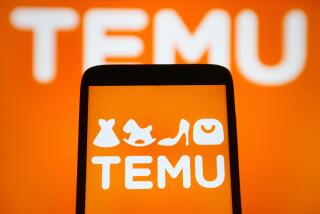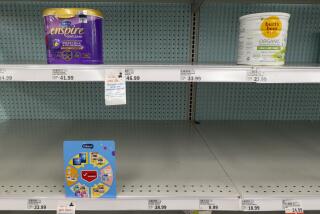U.S. Inspects Suspected Prison Factory in China
BEIJING — China allowed U.S. Customs agents to inspect a factory suspected of using prisoners to make goods for export, the first such visit permitted in three years, diplomats said Tuesday.
The U.S. Embassy declined comment on Friday’s inspection, but a Western diplomat who spoke on condition of anonymity said inspectors who visited the Dezhou Machine Works factory in eastern Shandong province found no sign that U.S.-bound exports were being made there. U.S. law forbids the import of goods made using forced labor.
The inspection came at a fortuitous time in U.S.-Chinese relations: President Clinton and his Chinese counterpart, Jiang Zemin, met in New York last week, and the U.S. Senate opened debate last week on a low-tariff trade pact with China.
Sens. Tom Harkin (D-Iowa) and Frank R. Lautenberg (D-N.J.) asked about renewing the prison factory inspections during a visit to China last month. Their votes would boost the prospects for passage of the trade pact, which China has sought. Harkin, strongly backed by labor, has expressed reservations about the deal.
China’s answer came last week. Customs agents, accompanied by U.S. Embassy staff, visited the Dezhou factory.
As early as 1992, the Laogai Research Foundation, a U.S.-based group that tracks China’s numerous forced-labor camps, identified the Dezhou factory as one that used prisoners to produce diesel engines for export, perhaps to the United States.
The Western diplomat said the factory now produces trishaws, three-wheeled pedaled vehicles used to transport goods and people.
More to Read
Sign up for Essential California
The most important California stories and recommendations in your inbox every morning.
You may occasionally receive promotional content from the Los Angeles Times.










